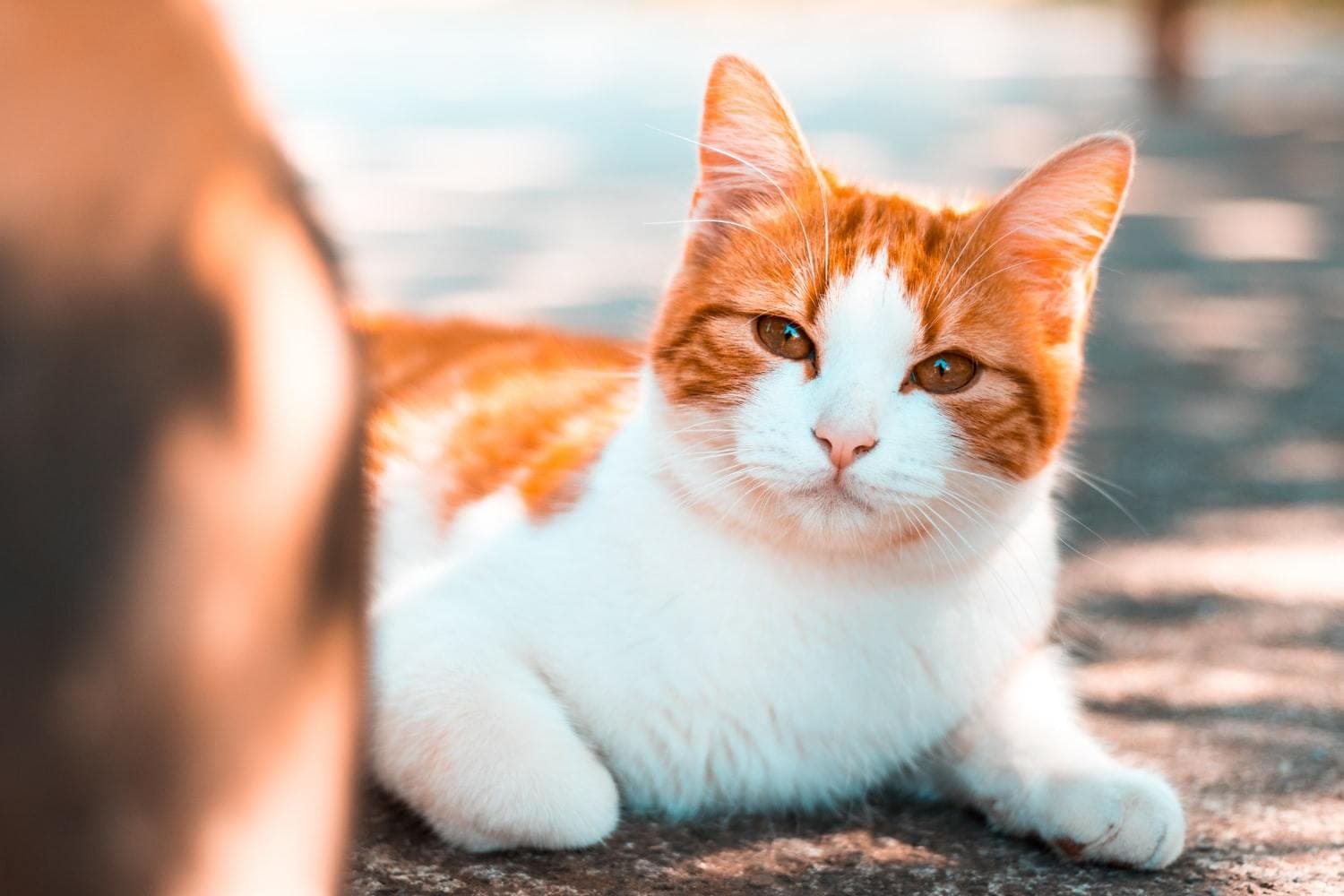Feline obesity is one of the most prevalent health concerns in cats, yet it is hardly ever a prioritized topic when it comes to cat wellness. Chubby cats are adorable, which is probably why obesity in cats has largely been normalized, overlooked or even preferred by many cat owners. However, as cute as your chunky button is, those extra pounds can have very detrimental consequences for its health and quality of life.
Why is feline obesity such a serious health threat?
The excess fat in cats (and dogs!) increases risks from several dangerous diseases, it reduces your pet's longevity and diminishes the quality of their life. The problem of obesity doesn't only lie with the "extra pounds" your pet carries, but also with the lifestyle and diet plan that typically come with it. Your pet's diet should address all their nutritional needs, while staying within the caloric requirements. Dr. Ernie Wards, the author of Chow Hounds: Why Our Dogs Are Getting Fatter – A Vet's Plan to Save Their Lives (2010 HCI) and Founder of the Association for Pet Obesity Prevention, wrote for Pet Health Network: "Less is more when it comes to feeding pets and living longer. Eating less has been proven to extend life expectancy and reduce suffering in species as diverse as worms, spiders, water fleas, fruit flies, fish, hamsters, mice, rats, dogs, and monkeys. In a 1999 longevity study conducted on dogs, researchers found dogs fed 25% fewer calories than normal lived an average of two years longer."

Excess body fat exhausts your cat's body and organs, diminishing the normal functioning of the systems and increasing risks from developing a number of diseases. Last year, Nationwide analyzed more than 630,000 insured pets in its database to determine the top 10 obesity-related conditions in cats and dogs. These include bladder/urinary tract diseases, chronic kidney disease, Diabetes mellitus, asthma, liver disease, arthritis, hypertension, heart failure, gallbladder disorder and immobility of spine. We have created an overview of these findings here.
How common is feline obesity?
In a 2018 clinical survey by Association for Pet Obesity Prevention (APOP), 55.8% of dogs and 59.5% of cats were classified as clinically overweight or obese by their veterinary healthcare professional. This means that according to 2018-19 pet population projections provided by the American Pet Products Association (APPA), there were circa 50 million overweight dogs and 56 million overweight cats in 2018. Now, those are some scary numbers! With such a high number of overweight or obese cats, it is extremely important to raise awareness about the seriousness of this problem and the impact it has on feline health.

What can I do to help my cat shed a few pounds?
Feline obesity is a complex condition largely influenced by your kitty’s genetics, diet, lifestyle and health status. Treatment and prevention of obesity typically focuses on balanced diet and healthy exercise. You will need to consult with your vet to design an appropriate diet plan for your cat according to their nutritional needs, age and health. But remember, treats have to be incorporated in this diet plan too. We all love to spoil our kitties, but the additional calories can quickly add up with a few treats here and there. Treats need to be dosed just as carefully as main meals, and they should not be the major part of your cat's diet. This means that you will have to learn how to resist your kitty when it plead for food. Cats are masters of begging, and it is nearly impossible to resist those big, sad eyes and the starved "meow".
Deborah Linder, DVM, a veterinary nutritionist from Tufts, explained this problem in detail for Tufts Catnip. She explains that cats are often so persistent when it comes to pleading for feed because they know you will eventually cave in and feed them. "[This] proves a point to them, which is that if they try hard enough, they can train you. I’ve definitely seen that with clients quite a number of times." - explains Dr. Linder. She recommends employing timed feeders to break this spell, as it might help breaking the association your cat has made with you and having access to food. She also recommends re-directing your cat's attention to "get their mind off the kibble".

Chubby cats are often perceived as cute and adorable (which they are!), and this perception often takes the focus away from the actual health concern that comes with the extra pounds. Chunky cats may be cute, but the next time your kitty begs for a treat, try to remember that it is the healthy cat that makes for a happy cat.




